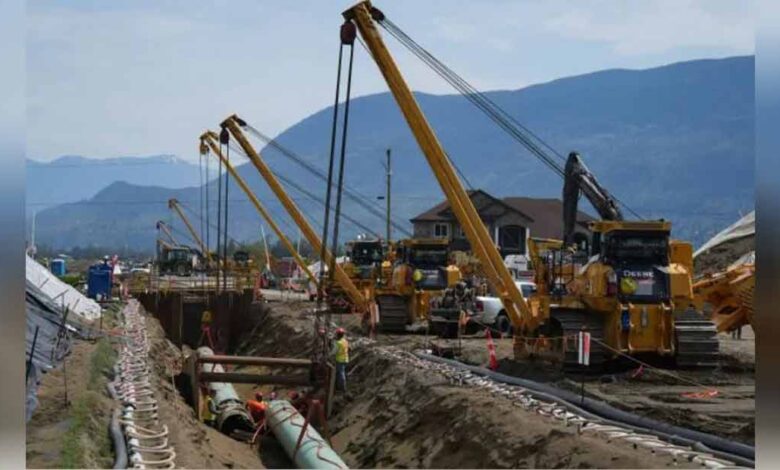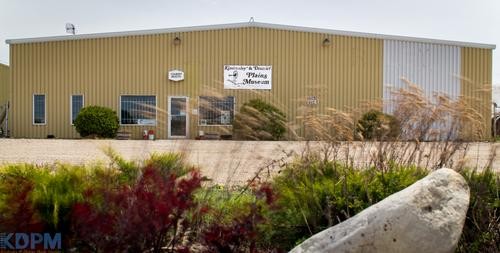
Trans Mountain Oil Pipeline Expansion Project Stopped in Wetland Area
On Thursday, the Canada Energy Regulator (CER) issued an order directing the Trans Mountain oil pipeline expansion project to halt its operations in a wetland area near Abbotsford, British Columbia. The action was taken in response to inspectors uncovering numerous instances of non-compliance with environmental and safety regulations.
This latest order adds to the ongoing challenges faced by the Canadian government-owned project, including extensive regulatory delays, environmental opposition, and substantial cost overruns. Some of the identified non-compliance issues involve inadequate fencing for amphibian protection and unauthorized clearing of vegetation, as stated in a notice posted on the CER’s website.
The CER has issued an Inspection Officer Order to Trans Mountain, mandating a suspension of work in the wetland until the non-compliances are rectified. The company must also investigate the root causes of these issues and conduct a safety inspection to ensure that the site is safe for future work.
Trans Mountain Corp, the government-owned corporation responsible for the expansion project, clarified that this order pertains to a specific work area spanning approximately 800 meters. They expressed their commitment to addressing all non-compliance matters and preventing their recurrence. The company stated its intention to seek the lifting of the order’s restrictions in accordance with the law when appropriate.
Despite these setbacks, the oil pipeline expansion project is over 95% complete, according to Trans Mountain. Upon its completion, the project will significantly boost the capacity of the existing pipeline, which runs from Alberta to Canada’s Pacific Coast, with a daily capacity of 590,000 barrels. It is scheduled to begin operations early next year, offering access to markets in Asia and on the U.S. West Coast for Canadian crude.
In 2018, Prime Minister Justin Trudeau’s Liberal government acquired the pipeline to ensure the expansion project’s progress. However, its cost has surged, now standing at C$30.9 billion ($22.49 billion), largely due to construction delays. In 2021, Trans Mountain was previously instructed to suspend work for four months to safeguard hummingbird nests along a one-kilometer section of its route.








































